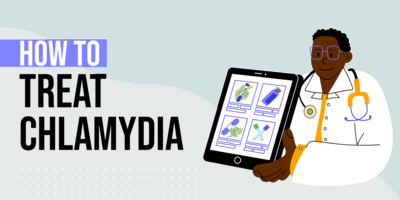
How to Treat Chlamydia
Chlamydia is a bacterial infection that is spread by sexual contact, according to the CDC. It is one of the most...
Read moreHelp patients book appointments with you on Solv. It's free!
20 instant-book locations


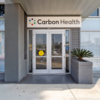

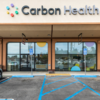

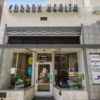
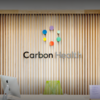


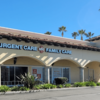



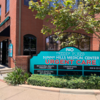
Help patients book appointments with you on Solv. It's free!
Anyone who has been exposed to the virus should get tested for hepatitis. This includes people who have shared needles, had unprotected sex, or have come into contact with infected blood. It's also important for those who have traveled to countries where hepatitis is common to get tested. According to the CDC, people born between 1945 and 1965, commonly known as baby boomers, are also at a higher risk and should be tested.
Getting tested for hepatitis is crucial as it allows for early detection and treatment, which can prevent liver damage and other complications. It can also help prevent the spread of the virus to others. According to the CDC, many people with hepatitis do not have symptoms and do not know they are infected, so testing is the only way to know for sure.
Urgent care and walk-in clinics in Los Angeles, such as Carbon Health and Endure Urgent Care, provide hepatitis testing services. These facilities offer the convenience of same-day and next-day appointments, which can be booked through Solv’s website and mobile app.
Primary care providers are another option for hepatitis testing. These healthcare professionals can provide ongoing care and treatment if you test positive for the virus.
There are also free STD testing and community health centers in Los Angeles that offer hepatitis testing. These facilities provide services to those who may not have insurance or who cannot afford to pay for testing.
At-home testing kits for hepatitis are also available. These kits allow you to collect a sample at home and send it to a lab for testing.
Los Angeles has seen a steady increase in hepatitis cases over the years. According to the CDC, Los Angeles County reported a higher number of hepatitis cases compared to nearby counties such as San Diego County and Orange County. This could be due to a variety of factors, including population density and access to healthcare services.
Risk factors for hepatitis in Los Angeles include drug use, unprotected sex, and exposure to infected blood. The city's large population and diverse demographic can also contribute to the spread of the virus.
In addition to hepatitis, other STDs such as gonorrhea, chlamydia, HIV, and syphilis are also prevalent in Los Angeles. These STDs also show a trend of increasing cases, similar to hepatitis. It's important to get tested for these STDs as well if you are at risk.
Solv has strict sourcing guidelines and relies on peer-reviewed studies, academic research institutions, and medical associations. We avoid using tertiary references.
Annual Wellness Exam in Los Angeles
Chickenpox Vaccine in Los Angeles
DOT Exam in Los Angeles
Ear Wax Removal in Los Angeles
Eye Exam in Los Angeles
Flu Shot in Los Angeles
Hepatitis Vaccine in Los Angeles
Measles Vaccine (MMR) in Los Angeles
Pap Smear in Los Angeles
Physical Exam in Los Angeles
Shingles Vaccine in Los Angeles
Sinus Infection Treatment in Los Angeles
Sports Physicals in Los Angeles
Tetanus Shot in Los Angeles
Typhoid Vaccine in Los Angeles
Well-Woman Exam in Los Angeles
Yellow Fever Vaccine in Los Angeles
A1C Test in Los Angeles
CMP Test in Los Angeles
Chlamydia Test in Los Angeles
Diabetes Test in Los Angeles
Gonorrhea test in Los Angeles
H Pylori Test in Los Angeles
HIV Test in Los Angeles
Hepatitis test in Los Angeles
Herpes Test in Los Angeles
Mono Test in Los Angeles
Pregnancy Test in Los Angeles
STD Testing in Los Angeles
Strep Test in Los Angeles
Syphilis test in Los Angeles
TB Test in Los Angeles
Thyroid Test in Los Angeles
Trichomonas Test in Los Angeles
Vitamin D Test in Los Angeles
Tips, advice, news—your resource to stay healthy and safe while improving your experience with healthcare providers when you need them.